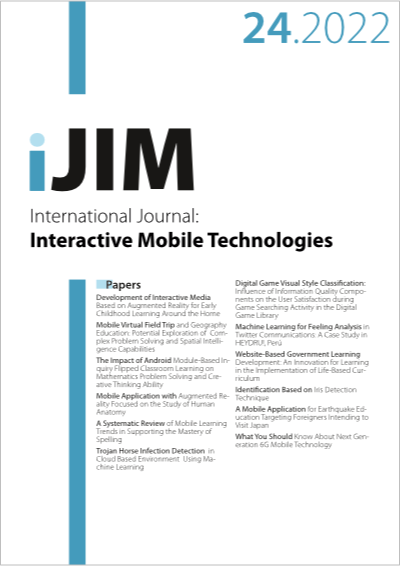Identification Based on Iris Detection Technique
DOI:
https://doi.org/10.3991/ijim.v16i24.36433Keywords:
Identification, Biological data measures, Deep Structured-Learning, UniNet, Fully Connected Neural Network, Convolutional Deep Neural Network, Eyeiris detectionAbstract
Iris-biometrics are an alternative way of authenticating and identifying a person because biometric identifiers are unique to people. This paper introduces a method aims to efficient human identification by enhanced iris detection method within acceptable time. After preparing various type of images, then perform a series of pre-processing steps and standardize them, after that use Uni-Net learning, so identify the human by Navie-Bays method is the last step based on the output of Uni-Net which is role as feature extractor for the iris part and another sub-net for non-iris part that may involve identification-outcome. The outcome of this method looked good compared to some high-level methods, so, was accuracy-rate 9855, 99.25, and 99.81 for CASIA-v4, ITT-Delhi, and MMU-database respectively. Also, this paper introduces a method of iris recognition using CNN model which is improved the preprocessed patterns that together from dataset applied some procedures to develop them based on techniques of equalization and acclimate contrast ones. After that characteristic extracted and classified using CNN that comprises of 10 layers with back-propagation schema and adjusted moment evaluation Adam-optimizer for modernize weights. The overall accuracy was 95.31% with utilization time 17.58 (mints) for training-model.
Downloads
Published
How to Cite
Issue
Section
License
Copyright (c) 2022 Shaimaa Hameed Shaker, Farah Qais Al-Kalidi, Raheem Ogla

This work is licensed under a Creative Commons Attribution 4.0 International License.



